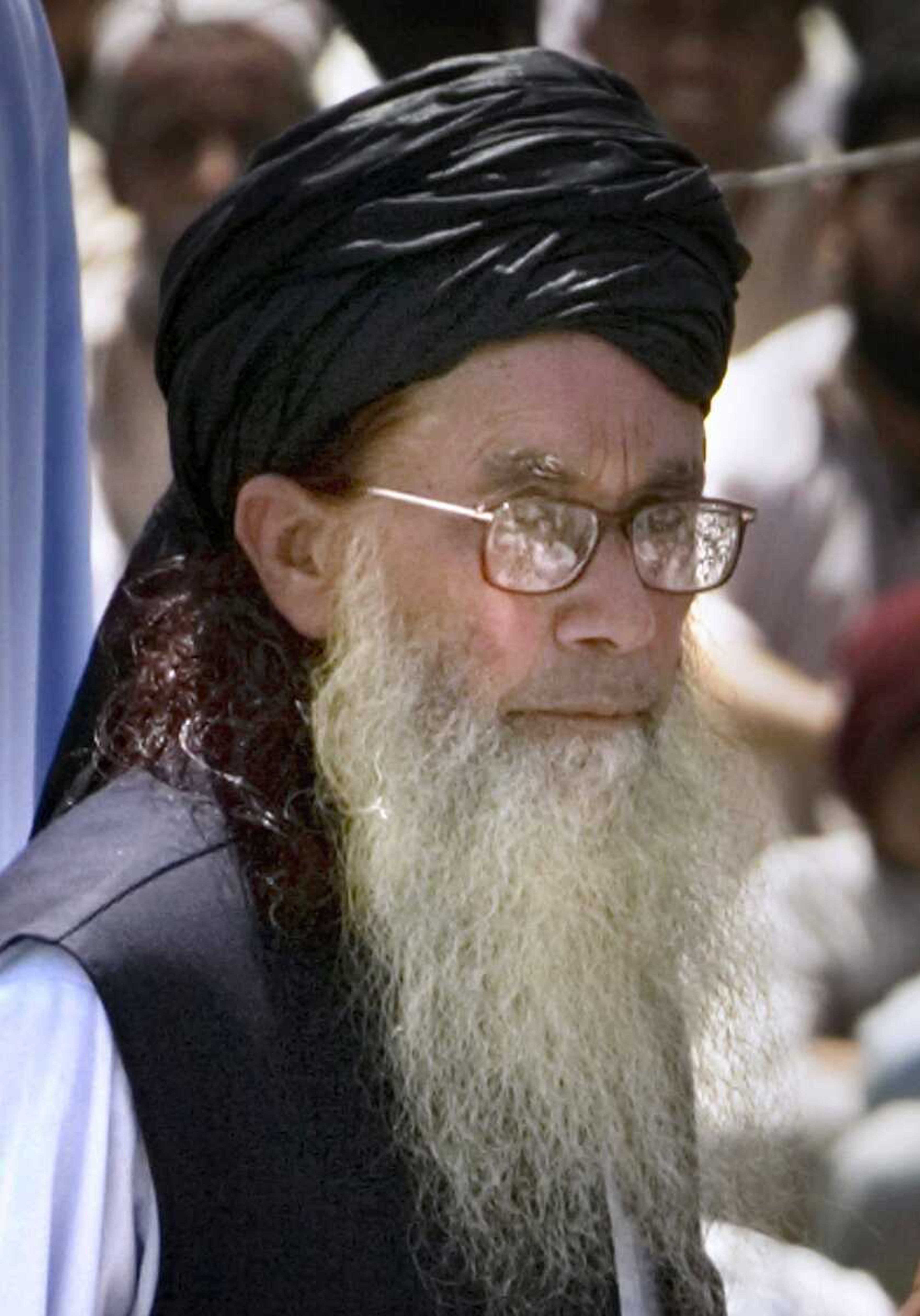Pakistan probes hardline cleric's ties to the Taliban
PESHAWAR, Pakistan -- Pakistani authorities are detaining for one month an Islamist cleric who brokered a failed peace deal with the Taliban in the Swat Valley to investigate whether he inappropriately aided the militants, officials said Monday...
PESHAWAR, Pakistan -- Pakistani authorities are detaining for one month an Islamist cleric who brokered a failed peace deal with the Taliban in the Swat Valley to investigate whether he inappropriately aided the militants, officials said Monday.
Sufi Muhammad was arrested Sunday, indicating the government won't try to strike another peace deal with Taliban fighters in the northwest valley, where the army has waged a three-month offensive.
Investigators may also be trying to pressure the aging cleric for information on the location of Swat Taliban commanders, including his son-in-law Maulana Fazlullah, the chief militant in the valley.
Amir Haider Khan Hoti, the chief minister of North West Frontier Province, said the government hopes to bring formal charges against Muhammad soon.
"We don't even need any further evidence against him," Hoti said in the main northwest city of Peshawar. "What he himself said publicly, that everybody knows. What he had said against constitution, the judiciary, the institutions. The contacts he has had with militants. The way he misled government. The way he facilitated militants. We will formally charge him on these things."
Muhammad will remain in jail for 30 days as authorities probe the allegations. "This action has been taken to avoid any public disorder," said government official Sahibzada Mohammad Anis.
The government relied on Muhammad's contacts with Taliban fighters in striking the February peace deal. But Hoti alleged Muhammad had misled authorities during the negotiations.
The pact imposed Islamic law in the valley in exchange for an end to two years of fighting -- much to the chagrin of the U.S. and other countries who warned the deal effectively ceded the valley to the Islamist militia and created a safe haven for insurgents.
The agreement collapsed in April when the Taliban advanced south out of Swat, triggering the military offensive.
Some 2 million people fled the region, and although hundreds of thousands have returned in the past two weeks as the military operation winds down, sporadic fighting continues.
Muhammad leads a banned pro-Taliban group known as the Tehrik Nifaz-e-Shariat Mohammedi, or the Movement for the Enforcement of Islamic Law. He was jailed in 2002 but was freed last year after renouncing violence.
Muhammad himself does not control the armed militants in Swat. However, he mobilized thousands of volunteers to go fight in Afghanistan after the U.S.-led invasion in 2001.
The Swat Taliban's ability to re-emerge will depend more on their leaders, including Fazlullah. The army says Fazlullah has been wounded, although the Taliban reportedly deny it. None of the commanders is definitively known to have been captured or killed.
The most recent clashes among troops, pro-government tribal militias and Islamist militants left at least 31 suspected insurgents dead, the military said Monday.
Twenty alleged militants were killed in a remote area in the Khyber tribal region, according to Maj. Fazlur Rehman of the paramilitary Frontier Corps. The region is home to the Khyber Pass, a major transit point for supplies heading to U.S. troops in Afghanistan.
A military statement Monday afternoon said that over the previous 24 hours, troops had killed another suspected insurgent in Swat, while in neighboring Dir district, a tribal militia killed 10 suspected Taliban.
It was nearly impossible to verify the information independently. Access to the areas is restricted.
The military offensive and steps like Muhammad's detention are signs that the Pakistan government will no longer negotiate with Taliban.
Arch rival India also wants Pakistan to punish the militants from banned outfit Lashkar-e-Taiba, which it blames for the last year's attacks in Mumbai. Pakistani officials' attempts to keep a Lashkar founder Hafiz Saeed detained, however, have been stymied by the courts.
Interior Minister Rehman Malik said Monday that India needed to give evidence to help Pakistan make the case against Saeed, who was freed from house arrest earlier this summer.
"We do not have any proof against Hafiz Saeed," Malik told private Geo TV in an interview. "We have demanded, and we are demanding from India that if you have proof, give us, but do not do propaganda. I assure we will take action. But just on hearsay we cannot arrest our citizen."
Also Monday, an anti-terrorism court ruled that a former Islamist lawmaker accused in the beheading of a Polish geologist will remain in custody until Aug. 10 while police gather evidence, senior police officer Malik Tariq Awan said.
Shah Abdul Aziz, a member of a pro-Taliban religious party elected to parliament's lower house in 2002, was arrested a month ago.
Aziz is accused of having plotted the abduction of Piotr Stanczak. The Pole's beheading -- shown in a video that surfaced in February -- was the first of a Westerner reported in Pakistan since the 2002 killing of Wall Street Journal reporter Daniel Pearl.
Awan said investigators had recovered a letter from Aziz sent to him by Pakistani Taliban chief Baitullah Mehsud. Awan did not divulge its alleged contents.
Aziz's elder brother, Mohammad Rafiq, said the allegations were "all rubbish" and that he's seeking a lawyer to defend his brother.
"We will do our best to prove the charges wrong, but I am not sure under this system we will get any justice," Rafiq said.
------
Associated Press Writer Asif Shahzad in Islamabad contributed to this report.
Connect with the Southeast Missourian Newsroom:
For corrections to this story or other insights for the editor, click here. To submit a letter to the editor, click here. To learn about the Southeast Missourian’s AI Policy, click here.










